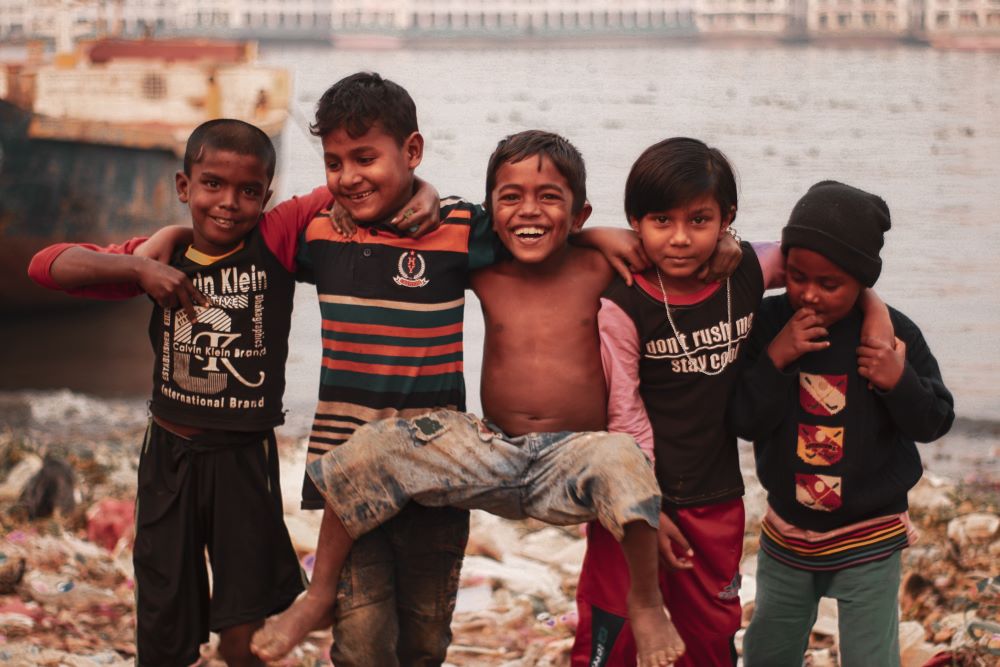
(Unsplash/Mohammad Samir)
Editor's note: For many years, Maryknoll Fr. Bob McCahill has been sending an annual letter to friends at Christmastime, chronicling his experience living among the people of Bangladesh. Since 1984, NCR has published his annual letter near Christmas. The following is an edited version of his 2023 letter.
Dear Friends,
Two weeks ago, I completed the first year of a planned three-year stay in Srinagar town of Bangladesh. Shahe Alam, the founder of a kindergarten and high school in the town, believed in my stated intention to serve the poor, especially children, and invited me to live at the school.
My home in the school is one-fourth part of an empty classroom, and measures 6 feet wide and 14 feet long. Immediately beside me is a classroom for happy, noisy 5-year-olds. Formerly my room had been used as the school's prayer room.
From that room, I depart on bicycle daily at 6 a.m. to search for children in need of medical, surgical or mental health attention. That effort is progressing slowly, for the people know no other Americans, and surely no other Christians. Our conversations center on these questions put to me by people who suspect Christians of aiming to convert them from Islam to Christianity. They ask: "Who are you?" I answer: "Your Christian Brother Bob." They: "What do you do?" I: "I look for children who need treatment." They: "Why do you do it?" I: "Jesus is my model in life. I try to do what Jesus did." They: "What is your benefit from serving them?" I: "I receive Allah's blessings. Happiness and peace are my rewards."
Although this has been my first year among the Muslims and Hindus of Srinagar (approximately 95% and 4%, respectively) it has been a happy yearlong experience. The invitations I offer to parents to take their children for free treatment oftentimes end in failure to convince them. Yet, it gives me satisfaction to have made the offer. I feel good that I tried.
I observe goodness in the lives of many. When I see a rickshaw driver giving a free ride to an exhausted, penniless beggar, I am impressed. A village chairman's wife founded a school to assist autistic children living nearby. A remote village's baker, Monir, invited me to visit his humble bakery and then gave me a freshly baked cake as a remembrance. Ali invited neighbors to a communal iftar/snack at the end of a day of Islamic fasting. Salam invited me to his home for the celebratory meal on Eid day. Skillful iron worker Farooq repaired my single-burner kerosene stove without charging any fee. Grandmother Rahima led me on foot to meet families a long walk away having greater needs than hers. Shakeel requested me to pray so that his pilgrimage to Mecca for Hajj be a success. Jul Haj abandoned his wee store for an hour to guide me to where a needy child lives. Bicycle repairman Roky fixed my damaged brakes, freely. Sipat's mother in Bir Tara village feeds her son slowly, by hand, as she has done for every meal since his birth 16 years ago. The kindness and compassion of all these people are unmistakable. It is also evident that many people hesitate to accept my offers to help. To build trust among us will take more time.
Advertisement
Now you know the Muslim and Hindu villagers of Srinagar about as well as I do. We all belong to God.
The unpredictable fact is that, for the most part, payment for the children's treatment at some hospitals is much reduced or even forgiven. Why? Because as Bangladeshis often explain, "TIB," meaning: "This is Bangladesh."
Fraternally,
Bob







